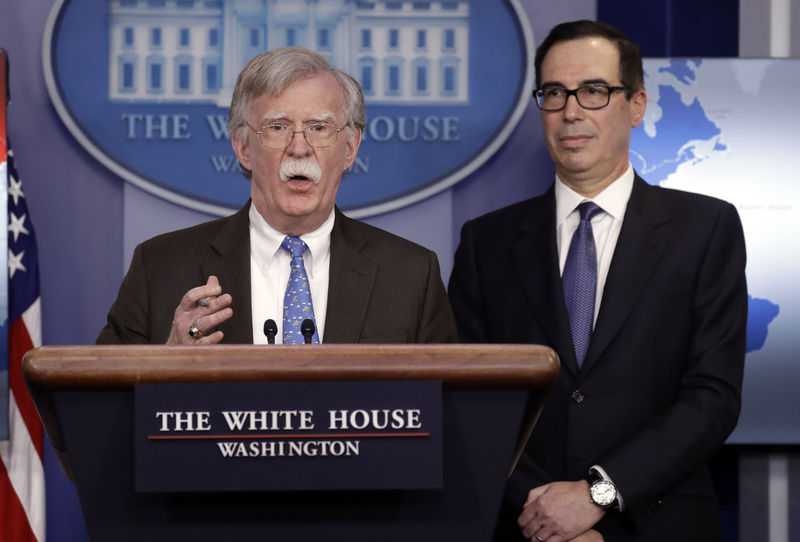U.S. sanctions Venezuelan state oil company
30 January, 2019

The Trump administration on Monday imposed sweeping sanctions on Venezuelan state-owned oil firm PDVSA, aimed at severely curbing the OPEC member’s crude exports to the United States and at pressuring socialist President Nicolas Maduro to step down.
Minutes before the announcement, Juan Guaido, the Venezuelan opposition leader who proclaimed himself interim president last week with U.S. backing, said congress would name new boards of directors to the company and its U.S. subsidiary, Citgo.
Guaido, supported by the United States and most countries in the Western Hemisphere, says Maduro stole his reelection and must resign to allow new, fair polls.
Maduro, in a live national broadcast on Monday, accused the United States of trying to steal U.S. refining arm Citgo Petroleum, the OPEC member’s most important foreign asset, which also manages a chain of U.S. gas stations. He said Venezuela would take legal actions in response.
In the first sign of serious retaliation, three sources with knowledge of the decision told Reuters that PDVSA had ordered customers with tankers waiting to load Venezuelan crude bound for the United States to prepay for the cargoes or they will not receive authorization to fill the vessels or leave the ports.
The Trump administration sanctions stopped short of banning U.S. companies from buying Venezuelan oil, but because the proceeds of such sales will be put in a “blocked account,” PDVSA is likely to quickly stop shipping much crude to the United States, its top client.
“If the people in Venezuela want to continue to sell us oil, as long as the money goes into blocked accounts we will continue to take it, otherwise will we not be buying it,” Treasury Secretary Steven Mnuchin said at a White House briefing.
Oil at sea, already paid for, would continue its journey to the United States, he said. White House national security adviser John Bolton said at the briefing the measure would cost Maduro $11 billion in lost export proceeds over the next year and block him from accessing PDVSA assets worth $7 billion.
While there are significant exceptions, such as rules that should allow Citgo to keep using Venezuelan crude in U.S. refineries, the sanctions will likely cause some reordering of global oil flows as Venezuela seeks to sell elsewhere.
Gulf refineries that use Venezuela’s heavy crude will have to look for alternatives to replace supplies. Despite a sharp decline in oil exports due largely to mismanagement of the industry and the economic crisis Venezuela remains the fourth-biggest vendor of oil to the United States, supplying some 500,000 barrels per day.
Citgo, Valero Energy Corp. and Chevron Corp. are the three largest buyers of Venezuelan crude in the United States.
“They are not allowing tankers bound for Valero, Citgo and Chevron to leave Venezuelan ports if not prepaid,” a PDVSA source said referring to a decision by the company’s trade and supply division.
Other exceptions in the sanctions will make it easier for Chevron Corp. to keep participating in a joint venture in Venezuela, and allow U.S. entities in Venezuela to keep buying PDVSA gasoline.
TAG(s):
